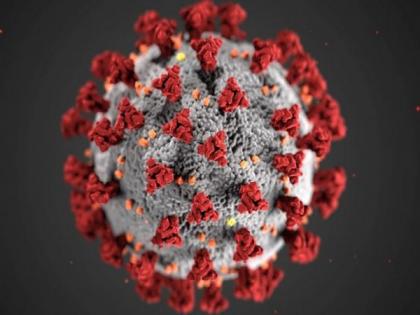Surge of COVID infections during 2nd wave attributed to double-mutant strain: PGIMER
By ANI | Updated: May 16, 2021 23:35 IST2021-05-16T23:27:31+5:302021-05-16T23:35:02+5:30
The PGIMER on Sunday confirmed that the surge in COVID-19 cases due to the second wave has somewhat been attributed to the B.1.617 variant strain.

Surge of COVID infections during 2nd wave attributed to double-mutant strain: PGIMER
The PGIMER on Sunday confirmed that the surge in COVID-19 cases due to the second wave has somewhat been attributed to the B.1.617 variant strain.
"Reports of sequencing of SARS-CoV-2 from 23 nasopharyngeal swab samples of COVID-19 patients sent from PGIMER, Chandigarh were received on May 13 from NCDC, New Delhi. Presence of the double mutant B.1.617 variant having the signature mutations L452R and E484Q has been confirmed in 22 per cent (5/23) of the samples after sequencing", said PGIMER Chandigarh Director Prof. Jagat Ram.
The Director PGIMER further stated that the B.1.617 variant first identified in India last year has been found in more than 40 countries and has recently been classified as a "variant of concern" (VOC) by World Health Organisation (WHO). It has been found by researchers that the mutations in the double-mutant strain render it to be more transmissible and vaccine-induced antibodies are somewhat less potent in neutralising this variant.
"The surge of cases during the second wave of COVID-19 pandemic has somewhat been attributed to the B.1.617 variant strain", added Prof. Jagat Ram.
Detailing further on the findings, the Director PGIMER shared, "Of the other samples, the UK variant B.1.1.7 which is also a VOC and associated with higher transmissibility was found in 39 per cent (9/23) samples. The UK variant B.1.1.7 carries the signature mutations N501Y, P681H, 69/70 Del. The rest of the samples carry the P681R mutation in the spike protein of the SARS-CoV-2 virus."
( With inputs from ANI )
Disclaimer: This post has been auto-published from an agency feed without any modifications to the text and has not been reviewed by an editor
Open in app